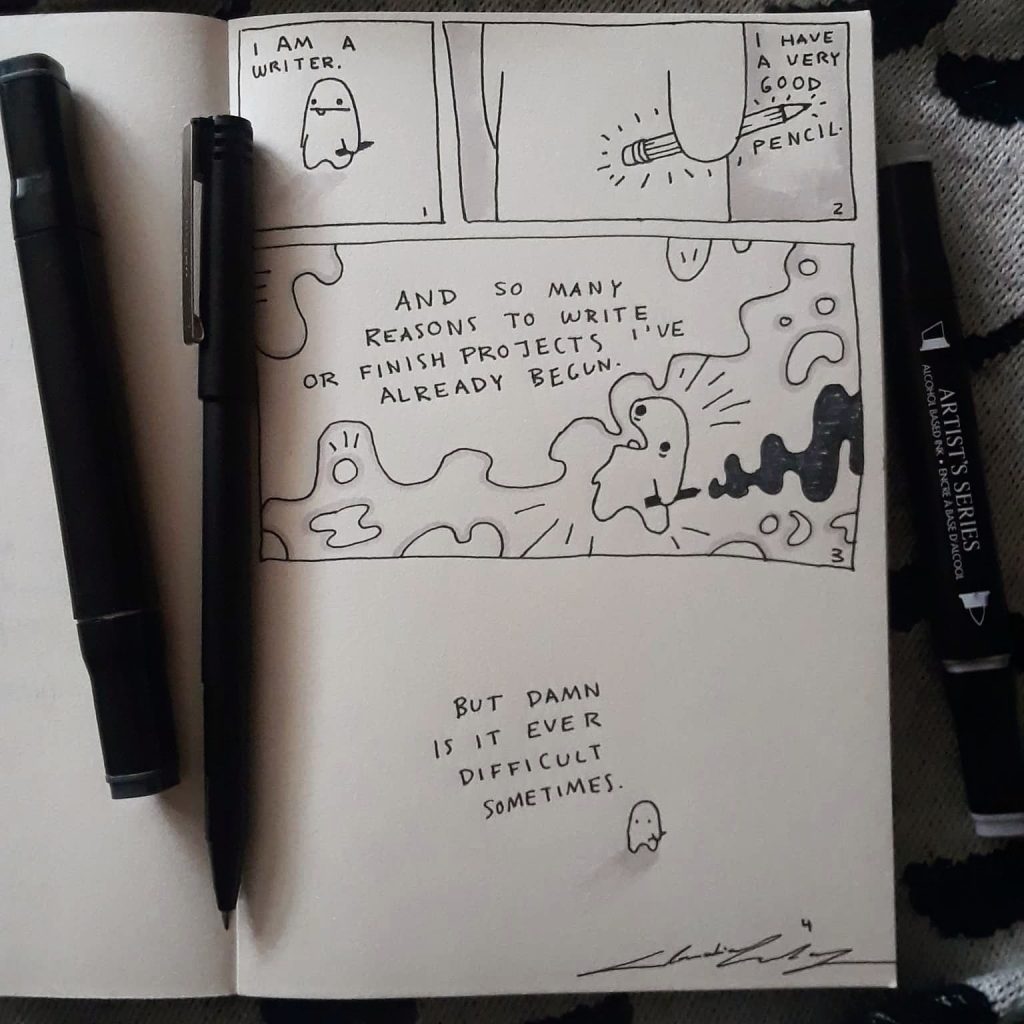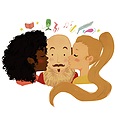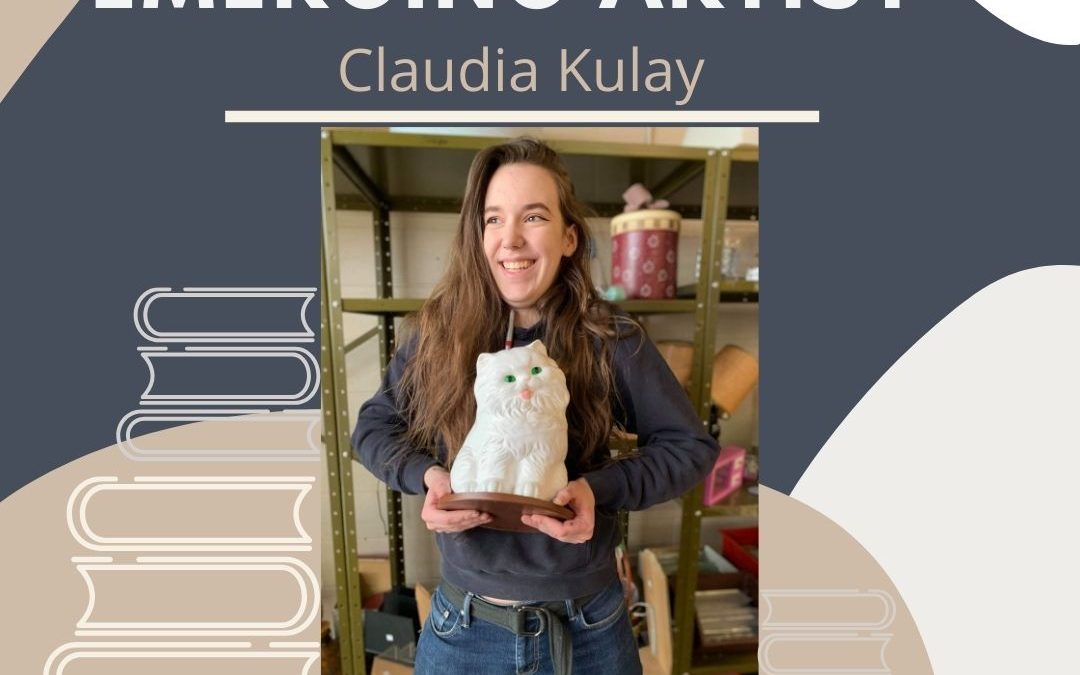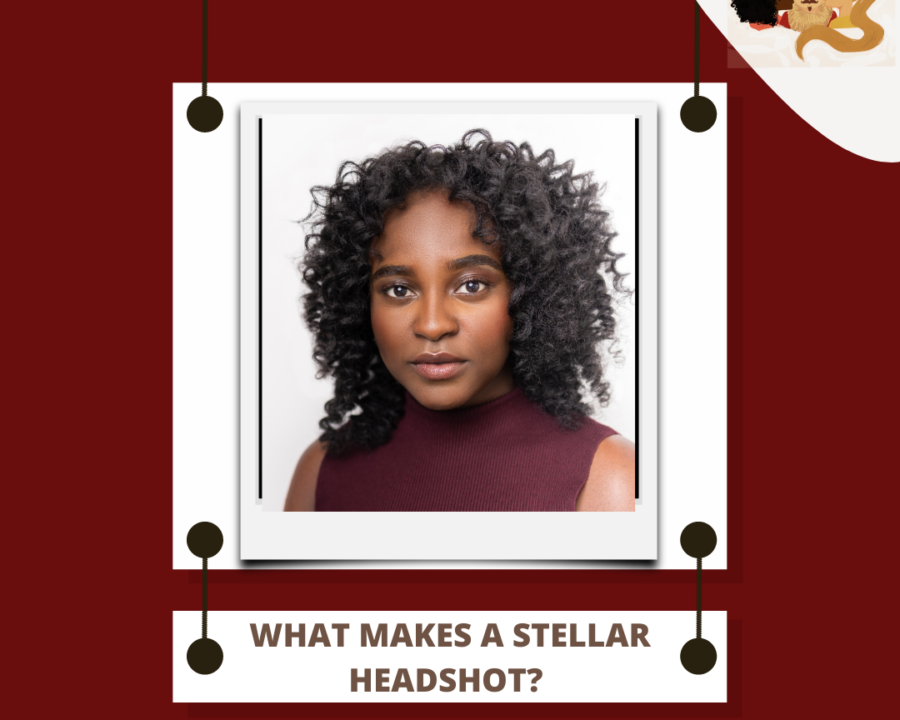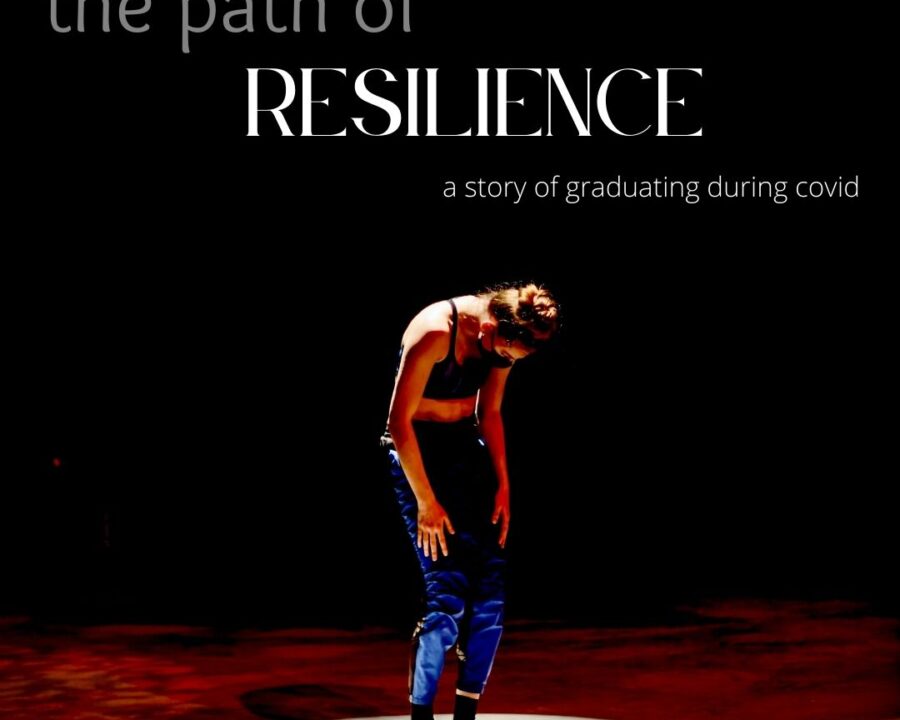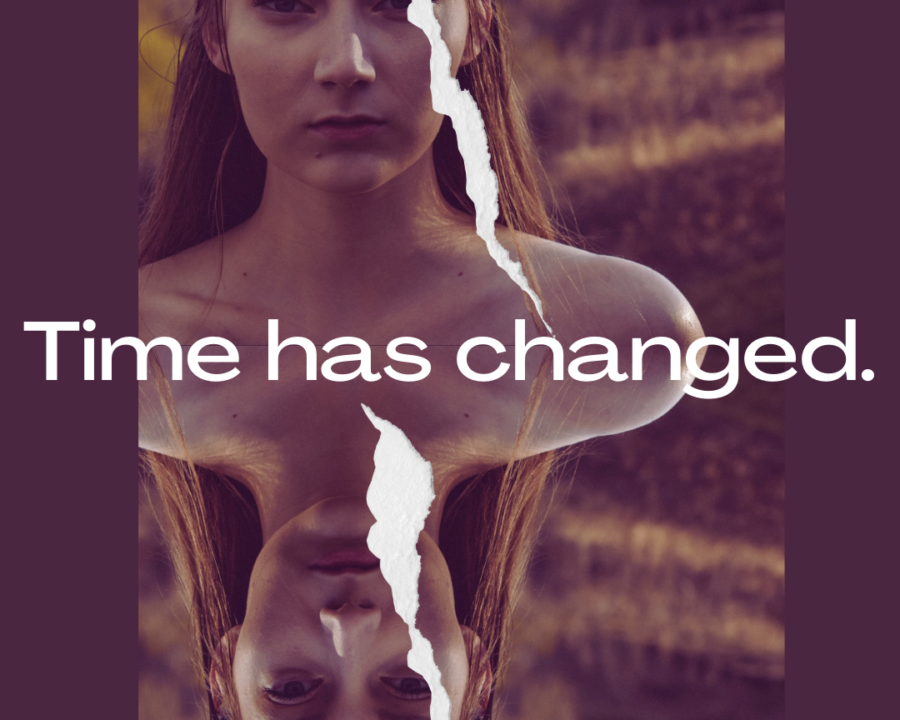
SELF-CARE CHAPTER
September 26, 2020
TUESDAYS TEA
September 29, 2020Emerging Artists is a blog series where we feature local and international emerging artists.
Meet Claudia

Claudia Kulay is an Edmonton based theatre artist, designer, overall fool and playwright. She is also a student and soon-to-be graduate from the University of Alberta’s BA Drama program. Recent works include her second play happy now, which was featured at the 2020 New Works Festival and recent winner of the Wildfire Playwrighting competition with Major Matt Mason. Her first script headhole showcased at Nextfest as a progress showing (2019) and featured in New Works in development series in December 2018. She has also worked on various productions with L’Uni Théâtre as an assistant director, hoping to bombard her friends with bilingualism and francophone theatre.
Where it all starts
How do you choose between production, writing, and design?
They all kind of work into one another in a way, because as a writer, I’m very visual. Most ideas come visually or come from design ideas, so that’s why I enjoyed design so much because it’s so, so a part of the way I tell stories. Then directing falls into all of that because you get to decide how the bodies move onstage in the design. Then in the world, which is the writing of the play. For me picking a favourite… maybe writing because it’s at the base – where it starts. But then again, they’re all so connected. For me, and I think for many people who do a lot of the work or enjoy many different aspects of theatre, understand how interconnected it all is and like that is the best part of it.
World-building.
Yeah, most ideas again, as I said, come visually so either you’re out in the cityl. A moment will inspire you, a physical thing that you witnessed or that you were a part of, or you’ll be walking down Whyte Ave, then you’re like, “what’s that in the storefront?”. It’s just everywhere (inspiration). I think that’s the best part, it’s around, and if you’re open to it, you’ll be inspired by everything in your life that you may witness or feel. You can write about anything.
Eunice – it kind of sounds a little overwhelming to be honest, yeah
Claudia – yeah, it’s horrible lol I’m kidding.
The line between presence and creativity.
Sometimes inspiration surprises you because it’s not like I’m walking around constant thinking, “what do I write about next?”. You know? Cause that’s insane. But inspiration sometimes surprises you, so being willing to be inspired by things that you may not expect or not judging something that you might want to write about. Being like, “oh, that was inspirational,” and I don’t need to judge where it comes from or why like I’m drawn to a certain thing. Just write about it, and then the rest is done.
happy now

The Journey
I wrote happy now, and I started writing happy now when I was going through a really rough time. Very, very rough and instead of you know, just being down about it – not like that’s a bad thing, taking the time to process feelings. But a way for me to process what I was feeling was to write it down, not in a journaling way but in a playwriting way. Putting it into characters and putting it into a world that felt like it was separate, or felt like it was just a placeholder, like a container. Then I went from there, and instead of going in with a plan like “Okay, this is the story, and this is the plot, and this is the arc.” it was just like, let’s just write some shit down. Then it will turn into something later, so that was helpful. I think I do that with most writing and just put it somewhere and then step away from it for a while, and then (over time) it turns into a play. Like when you come back to it after its marinade, and after they come back to it with fresh eyes and you get to reflect on like the person that you were. And be proud that you’re still the same person, but that you’ve grown. happy now was a very cathartic experience from beginning to end, and it’s ongoing – I’m still like working on it. Still hoping to produce it eventually somewhere.
The writing was really difficult, and I still work on it today like it’s so really fucking hard. It was really a hard play. The hardest part of it was just getting it out and then letting it go and accepting it. Then I submitted it for New Works (University of Alberta festival supporting new plays, directors and actors), not knowing if I would get selected.
When happy now was chosen for New Works I was overwhelmed. Cassie James was assigned as the director. They’re a friend of mine and someone I’ve worked with before in the BA program so they are someone I really trusted with the work. I also think they were responsible about the play as well and really had their own vision for it. It was very exciting to see someone’s very specific vision bring up a play that was special to a lot of us. Also the team was blessed with great actors who were just so dedicated to work. I’m sure it was difficult work as well because yeah talking about depression and mental health is really hard. I’m glad it went out, but I’m glad that it resonated with people, and I’m glad that I get to work on it more in a way that I can refine it. It doesn’t feel like mental work anymore, it just feels like I’m working on a play. Coming back to it and realizing I’m not separate from the play is where growth happens. Overall a very cathartic and healing experience to work on that play.
Is this me or a play?
Its always been very interconnected. The dramaturge I’ve been working with said, “every character you write is you, whether or not you want to admit it right at the time.” I really agree with that; everything you write obviously comes from yourself. It doesn’t come from some creative lightning bolt. It’s from you, and once you understand that, then it’s straightforward from there. In the beginning, when I was trying to edit the themes and trying to like to compile a story or a play that people could at least sit down and watch – It was just hard. I was dealing with the same issues in my own life. The play was about my fears about mental health and medication and therapy. It’s all really sensitive stuff, so the difficult part comes while writing it.
Sharing your work strangers.
Being in a room and having an audience is terrifying. Yeah, being in the audience as the playwright, with an audience – some of the people I know but some of them I don’t. It’s new work to them, and maybe some of them don’t know that I wrote it, right, and it’s terrifying. I would equate it very similarly to the feeling of being an actor on opening night. “oh, I got butterflies, and I’m going to vomit.” It’s a very similar feeling of your presenting yourself, your honest self to a bunch of strangers.
New works – Wildfire.
Yeah, so the play changed a lot. Not in a way that it’s a drastically different story or anything, but It feels more refined, and it feels more like the play that I sought out to write from day one. I also had some time from New Works to Wildfire. I found out about winning Wildfire in May (it was the first piece of good news I had heard in a really long time). The play had room to breathe, and then again, having an unbiased opinion come in and someone who’s really experienced in theatre, dramaturgy, and playwriting. For them, just see and hear my voice, and say, “Okay, like, let’s bring it out fully.” The play feels more like my play. It also feels like something I would more confidently want to bring to fringe or bring to a festival or proposed to other companies. I feel more confident and happy now, which is great.
Editing behind happy now

Fighting for your voice.
I was really lucky in my experiences with dramaturges. I’ve worked with David Gagnon Walker (Wildfire Dramaturge) and Ken Williams (University of Alberta Dramaturge). Both of them understood that the playwright has their voice. I’m sure that there are situations where someone might present their work to a dramaturge and only receive corrective language like, “fix that.” I feel fortunate to have worked with dramaturges who heard me and supported the voice I brought to my work.
Dramaturge.
It’s a non-biased opinion of your play. I can hand my scripts in my partner, and I trust his opinion, but also, they are my partner. I can hand my script around to a table of friends, and even though someone might say, “I’m unbiased, and here’s my honest opinion,” they are still your friends. A dramaturge is a neutral setting where you don’t owe each other anything, really. They don’t know me deeply or personally, so they don’t give a shit about hurting my feelings – not that that’s like what happens in dramaturgy, obviously. It’s a safe, neutral setting, unbiased setting, where someone says, “here’s my advice and here is how I read the play.” It’s very special, and it’s very helpful
Line between professionalism and honesty.
How do you fight for your voice as an artist?
Eunice – I feel that as artists, it’s something that we struggle with, at least I do for sure.
Yeah, I struggle with that too, but I always come back to the idea that I’m writing it. Of course, I might be writing it so that people can see a play, or I’m working on this that people can witness and talk about it or whatever. But you have to be doing it for yourself, and if it feels like it’s not for you, then you gotta step away from it and re-figure out and re-discover like how to make it for yourself. If it’s not for yourself, then like fuck, it’s not worth it. It’s a waste of time to do things for other people constantly. It’s exhausting. The work comes from you, so why should you be doing it for other people to like? Or to please other people, or think “oh this is what sells” – like fuck that, you know? That’s easy to say, but, and I think everybody struggles it.
Reflecting back
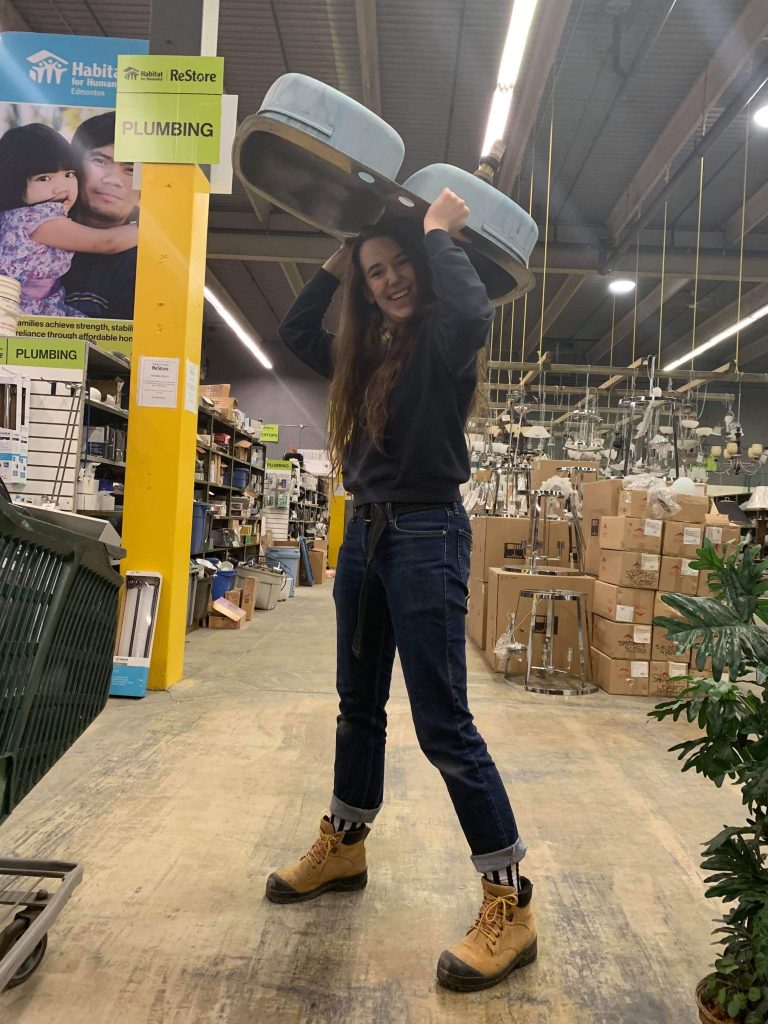
How do you feel now?
To be honest, I’m scared of where will be when this (COVID) is over. I hope we can come out of it with new ideas about theatre and patience with each other. I hope we can come out of this with hope, so where I’m at. I’m scared, but I’m very excited about being a playwright and having people I want to collaborate with. Like you know, the people you go to school with. They are your friends right now, hold on to those relationships and continue to contact those kinds of people. You went to school together, and that’s something so exciting. Also, I don’t know I’m really scared, to be honest. But I think that’s okay because I think like it means that it’s worth it. It obviously means that you care about it if you’re like fucking terrified. I hope that I can continue to do this work post-pandemic and still be involved in this community. It’s hard, where I’m at is; I’m like trying to graduate and be hopeful, I guess – you know? I don’t know if that’s like a very good answer.
Lauren – it’s a relatable answer.
Eunice – It’s honest
I’m excited to be able to produce and always write and be able to act and direct. Those are things I know will always be there, but right now, it’s terrifying. That’s okay, I think I can be at peace with that.
Advice… Reach out to people, and put up plays with your friends. Always, always be reading or researching or consuming art if you can. Continue to be inspired by the work that you do. Look at the work that other people in your community are doing, allow yourself to be like excited by everyone else is work: your friends and your peer. My advice is to reach out, always. Most of my experiences outside of U of A, Theatre wise, have been because I reached out or someone reached out to me.
Lauren – I’m reflecting a lot on what you just said, and I think everyone is so scared right now, but not a lot of people are admitting it. I think it’s important that we have conversations like this and share our fear with each other as a community – you don’t have to do it alone.
Yeah, and I do want to say that theatre is never going anywhere. Theatre will always exist because there are always people who will be doing this work. What’s scary is that the work we want (to do) and know isn’t there right now – that’s what’s scary.
Eunice – That is what’s scary. For me, I want us to communicate with each other better and adapt together. Often, especially in a university setting, teachers will assume what’s best for you when really what’s best for all of us is to do it together. Let’s all work together towards a common goal because this is a crazy time. It’s not a time to not talk. We really need to be honest with where we are at.
Follow & Contact
We hope you enjoyed our conversation with Claudia. Make sure to keep an eye out for her upcoming work in Wildfire check out her Instagram below! I think the conversation we had with Claudia at the end is so important and something we should continue to have and check in on. Let’s look after each other in our community, and also remember to look after ourselves. Hope you all are well, let us know if you have something you would like to share.
